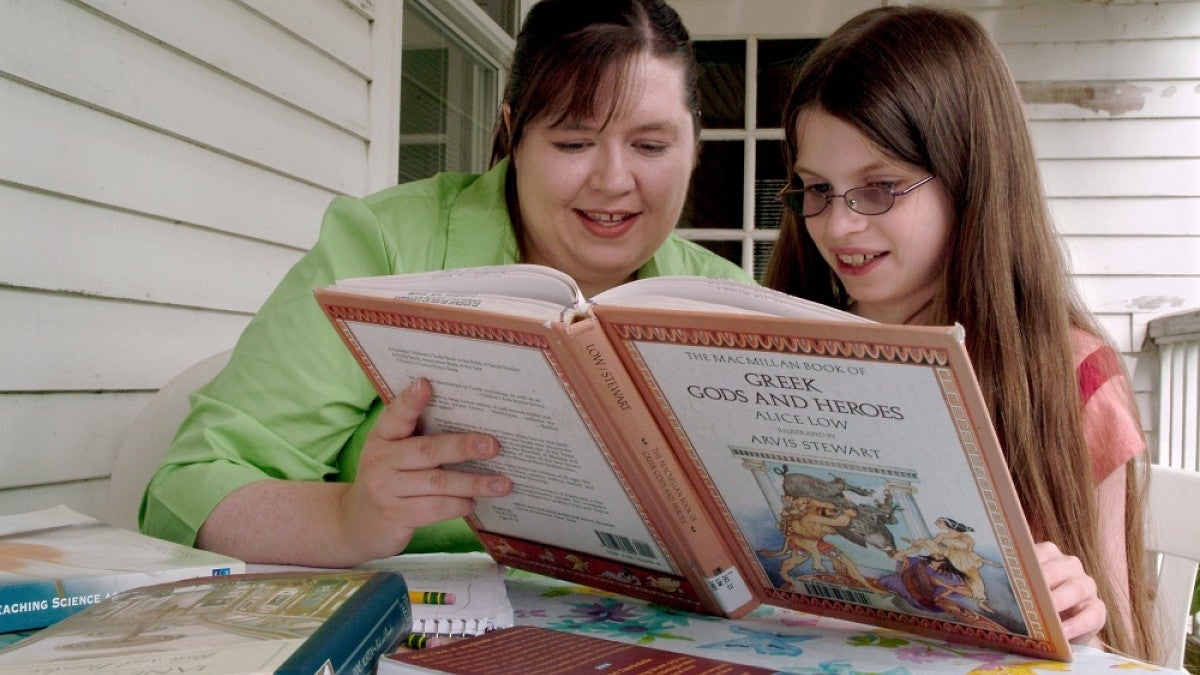The University of Oregon’s Center on Teaching and Learning — working in partnership with Florida State University’s Florida Center for Reading Research and RMC Research Corporation — has received a five-year, $7.5 million grant from the U.S. Department of Education to help improve literacy through evidence-based interventions and assessments.
The new technical assistance center, which launched officially in October, will help schools across the country translate and apply existing research to help students with disabilities attain full literacy skills. The goal is to provide parents and education organizations access to the most relevant and reliable approaches to screening, identifying and supporting students with literacy-related disabilities, including dyslexia.
Hank Fien, director of the Center on Teaching and Learning, will lead the new entity, the National Comprehensive Center to Improve Literacy for Students with Disabilities. Deputy directors Yaacov Petscher from FSU and Sarah Sayko from RMC will provide key leadership.
“The center will be an arbiter of the most rigorous research on reading and literacy and will translate this research for schools, parents, state education departments, Head Start programs, early childhood centers, parent advocacy groups and others,” Fien said. “Our charge is to make sure that these school practitioners, administrators and parents have access to the highest quality, current and most relevant research and tools to support their implementation of evidence-based practices.”
Many of the resources that will be available through the center already exist, Fien said. These include published research studies, online clearinghouses that summarize current research and resources from regional technical assistance centers.
Over the past several decades, researchers have amassed a wide body of research on literacy and disabilities. The challenge is how to best put that information in the hands of teachers, families and other consumers to improve literacy and create better outcomes for young children and students with disabilities.
In addition to parents, teachers and school districts, the new center will also partner with colleges of education to ensure that future generations of teachers will have access to the same goals and best practices.
“There’s a focus on working with institutes of higher education to ensure that their syllabi and courses reflect current scientific evidence on how to screen and identify students and provide them with services,” Fien said. “Working with Deans for Impact, a national group composed of the deans from numerous colleges of education, and other related groups, will help to ensure teacher prep programs are training teachers to effectively work with students who have a range of literacy-related disabilities.”
The center will also provide opportunities for graduate students in the UO College of Education to help develop new knowledge and translate current knowledge.
The Center on Teaching and Learning has longstanding relationships with both of its partners in the new center. The UO has been working with FSU’s Florida Center for Reading Research for more than two decades on issues related to literacy assessments and interventions.
Much of the research to improve outcomes for students with literacy-related disabilities has been developed at the UO with current and past College of Education professors such as Ed Kame’enui, Jerry Tindal, David Chard and Deb Simmons, Fien said. They have a longstanding tradition of working with FSU colleagues to develop a robust evidence base in screening, identification and intervention methods, Fien said.
RMC Research Corporation has been a partner to the UO and FSU on numerous projects, focusing on parent engagement, parent advocacy and large-scale technical assistance efforts to state education systems. Established in 2000, CTL focuses on research to address problems in school systems and to create better outcomes for children.
The funding cycle for the new award is five years, but Fien said he hopes the center will be a national and international go-to entity for how to improve literacy outcomes for students for many years to come.
—By Lewis Taylor, University Communications


